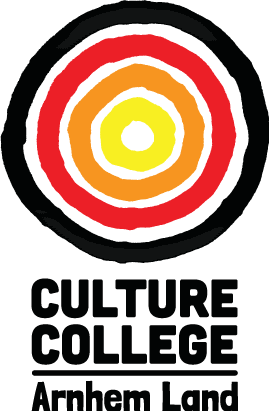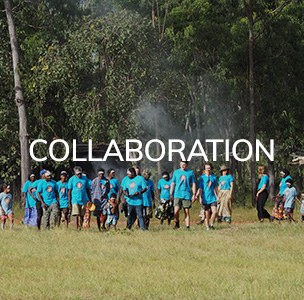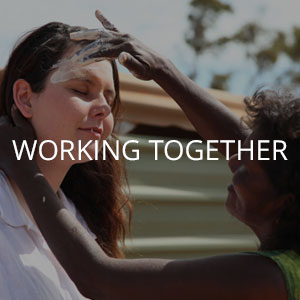YOLŊU WAŊA
COUNTRY
THE CULTURE COLLEGE BASE CAMP IS LOCATED ON YOLGNU COUNTRY, IN NHULUNBUY TOWN CENTRE, THE HUB FOR THE ENTIRE EAST ARNHEM LAND REGION.
Northeast Arnhem Land
The vast majority of the population of Northeast Arnhem Land are Yolŋu who have lived in kin with Country for over 75,000+ years. The Yolŋu people are the traditional custodians of nearly 100,000 square kilometers of land and sea Country, which is held under an inalienable freehold title. Yolŋu clans continue to maintain traditional customs and practices to live in alignment with their ROM (lore), Gurrutu (kinship), land management and ceremonial practices.
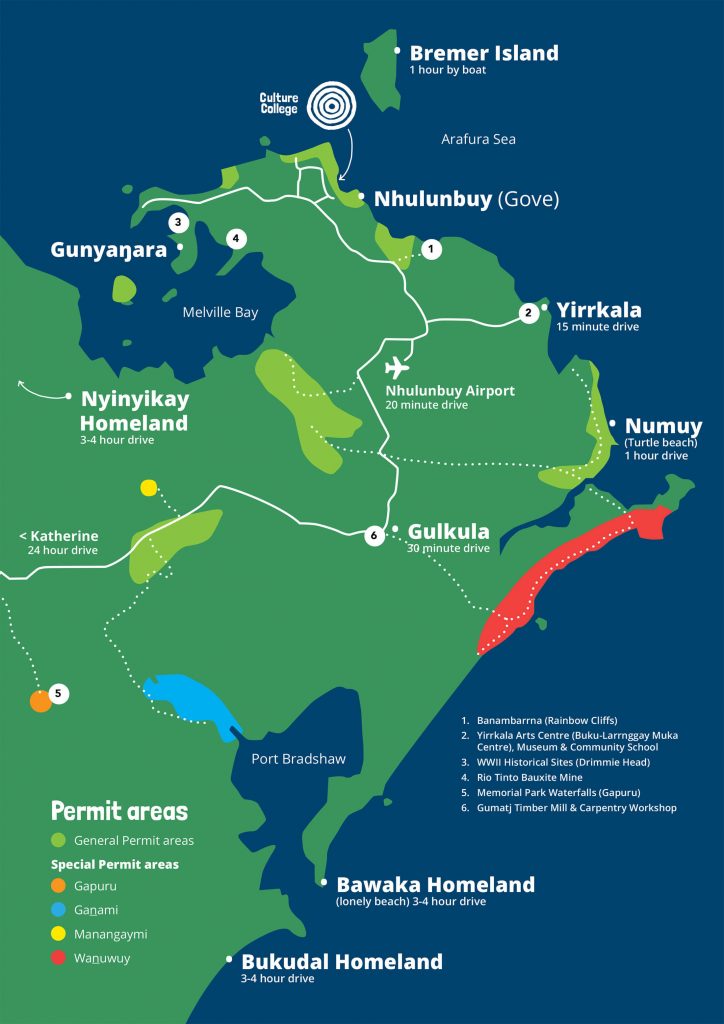
Gulkula
Our Midawarr program is delivered on Gumatj Country at the Gulkula, a meeting place of significance to the Yolŋu people set on the escarpment overlooking the Gulf of Carpentaria. Gulkula has the capacity to accommodate up to 2,500+ people, and since 1999 Gulkula has been the home of the annual Garma Festival. Gulkula is accessible all year-round on sealed and unsealed roads. Culture College is grateful for our existing commercial partnership with Gumatj Corporation and Yothu Yindi Foundation allowing access to facilitate our programs at Gulkula.

Yirrkala Community
As part of our program participants learn from specific sites of significance within the Yirrkala community. Yirrkala is the home of the Land Rights movement and is the largest Aboriginal community in the region located about 15 minutes from Nhulunbuy township. A key site of learning is the Buku Larrnggay Mulka Centre, participants take part in guided tour lead by Yolŋu educators.
Homelands
Homelands are connected to family clans and kinship groups; they are sacred places, bountiful in sources of food, and rich and diverse culture. The homeland movement began in the early 1970s when Yolŋu decided to leave the complexities of the Yirrkala mission and return to their ancestral country. Through our programs, we provide sustainable employment pathways for Yolŋu to teach culture on their ancestral homelands.
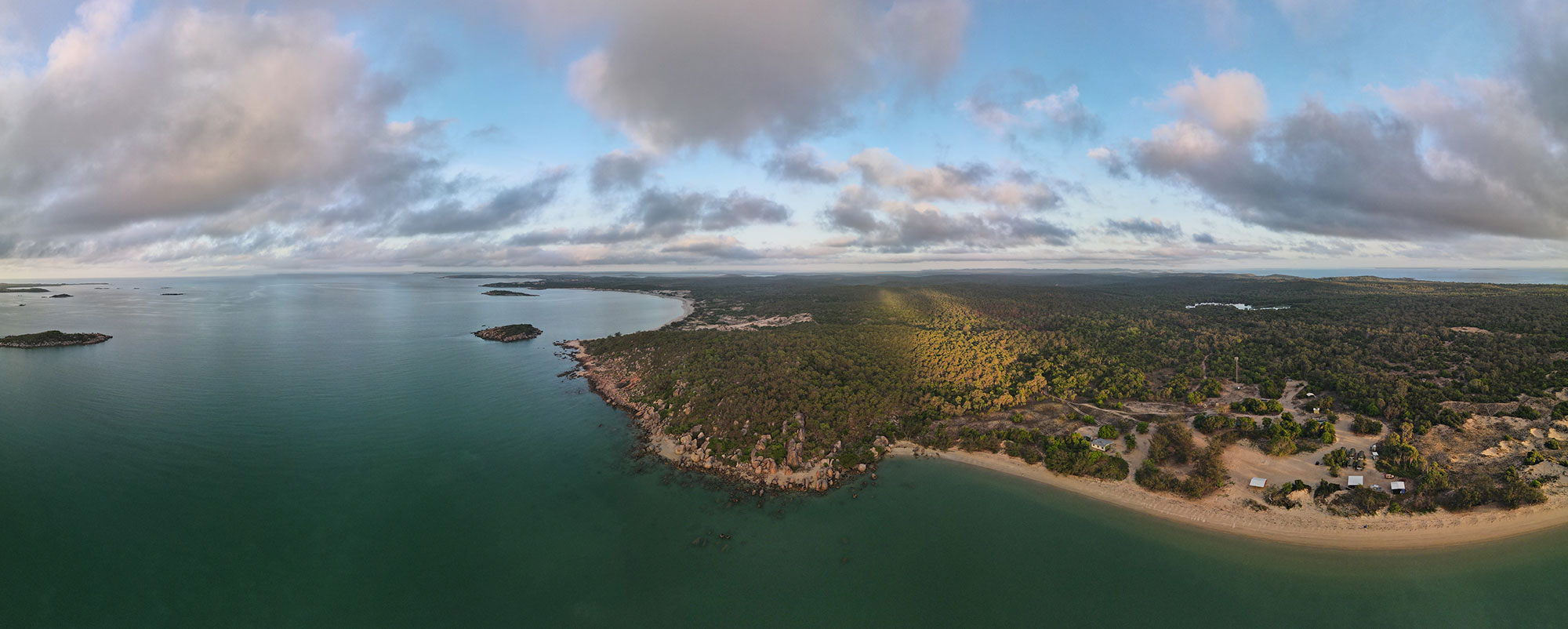
Yolŋu
The People
The People
Yolŋu means ‘person’ of East Arnhem Land. Yolŋu culture is among the oldest living cultures on earth, stretching back over 80,000+ years. Culture remains firmly intact, and may clans in the area have maintained traditional customs and practices. Approximately 5000 Yolŋu live in North-East Arnhem Land, from 40 differing language groups, reflecting the diversity of culture.
The earliest history of Northeast Arnhem Land is recorded in the paintings, dances and songs of Yolŋu, which tell of creation ancestors bringing lands waters, people, animals and plants into being and laying down the Djalkirri ROM (Foundational Lore) that governs and keeps all in balance.
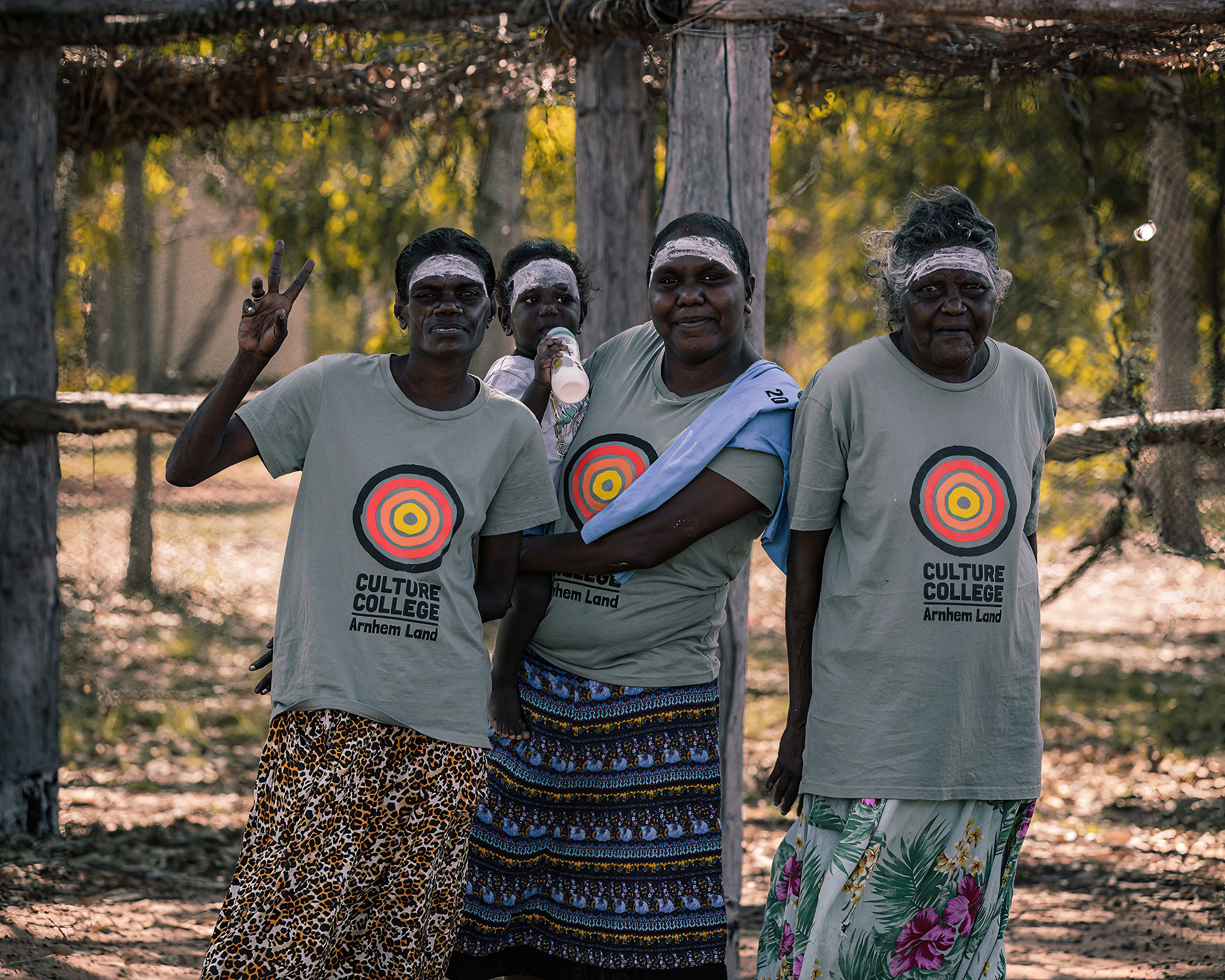
Makassans
Trade through Reciprocity
Trade through Reciprocity
Long before the arrival of Balanda (Europeans), Yolŋu welcomed Näpaki (non-Indigenous) visitors to the Country for more than one thousand years. The Makassans of Sulawesi, Indonesia, visited the shores of Northeast Arnhem Land every year when the trade winds blew. They came to trade resources such as steel, yiki (swords), calico, narali (tobacco), the sacred Djambuŋg (tamarind) tree, ceremonial practices and language that is still embedded today in exchange for dharriba or trepang (sea cucumber).
Trepang became a part of the world trade market through India, Japan and China. So Yolŋu were already a part of the world economy. Historical records demonstrate that Yolŋu travelled as far as Japan and India to see where their Trepang market went. Some returned, and some didn’t. Some Yolŋu have relatives in Sulawesi today. Ted’s (Picture ‘below’ on the right) family line remains connected to Makassar. These stories are shared and deeply felt when students come and learn with us.
Yolŋu and Makassans came together to co-exist through a reciprocal, two-way relationship based on respect and understanding of each other’s values, beliefs, culture, spirituality, ceremony and language. As a result, the relationship became “Manhatharra”, meaning the Makassans became kin and family with Yolŋu.
Today in Northeast Arnhem Land, different coloured “calico” flags represent each clan and the memory of the visiting Makassan boats. When the “calico” (flags) is raised during ceremonies, Yolŋu manikay (song) is sung both through Yolŋu spirituality and to Alla of the Koran, which they learnt from the Makassans. Calico (flags) remain a significant spiritual process of connection with Makassar embedded in Yolŋu culture and spirituality.
Participants learn and embody the stories and buŋul of the Makassans and Yolŋu during their learning journey with us.
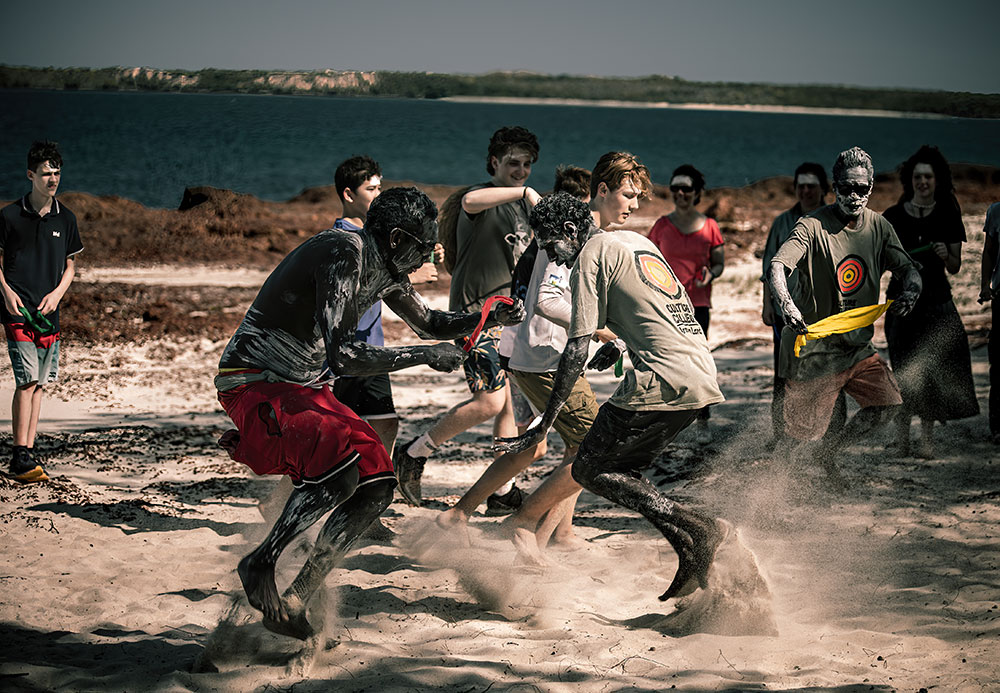
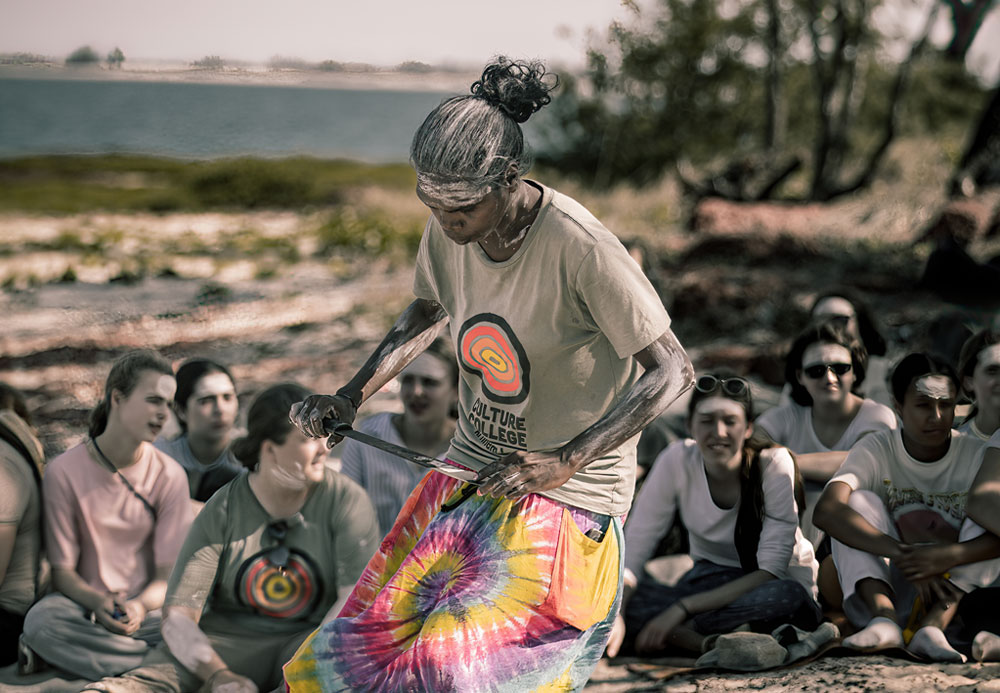
‘Your heart is like a good soil, and when you gather information and plant it in the good soil of your
heart – now we can see results… It’s more gathering through your studies, your education, then
putting it in your soil no matter who you are.
– Djapirri Mununggirritj
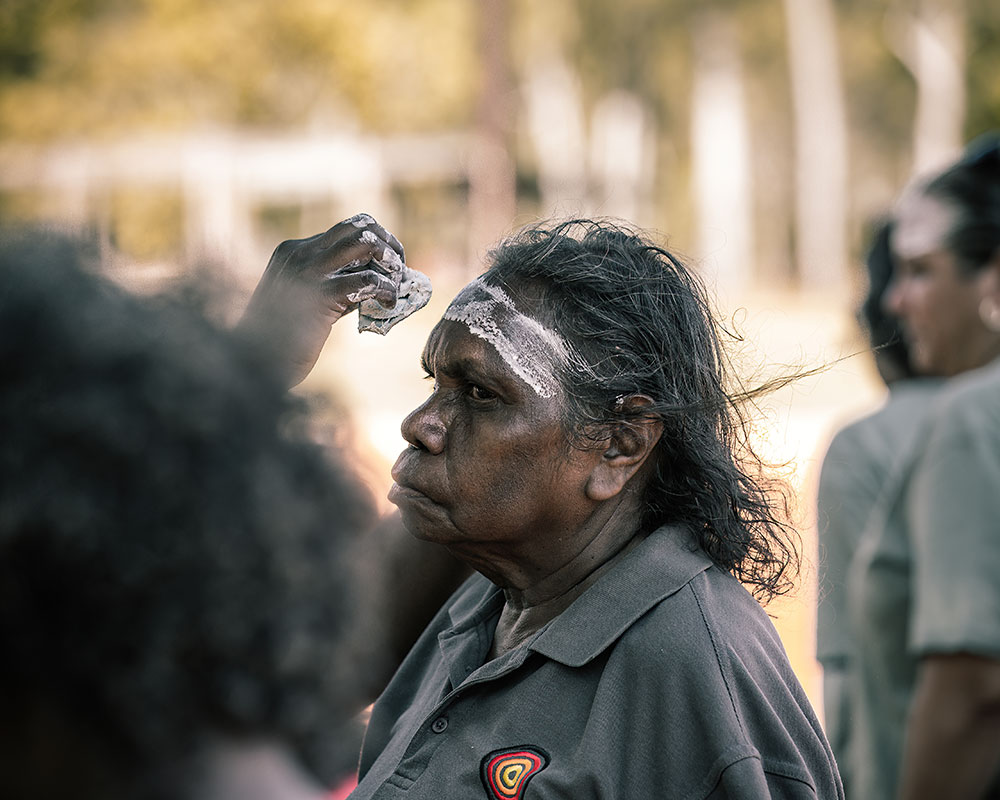
MORE
FROM CULTURE COLLEGE
We acknowledge all First Peoples of this land and sea. We celebrate your enduring connections to Country, law, language and stories. We pay our respects to Elders past, present and emerging and Ancestors who guide and watch over us through our commitment to creating a balanced future together.
© 2020 Culture College
Made By Jones&Druce
